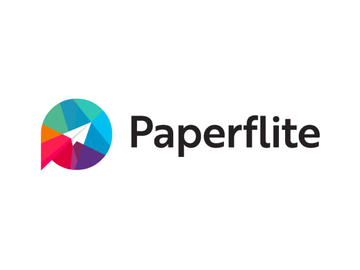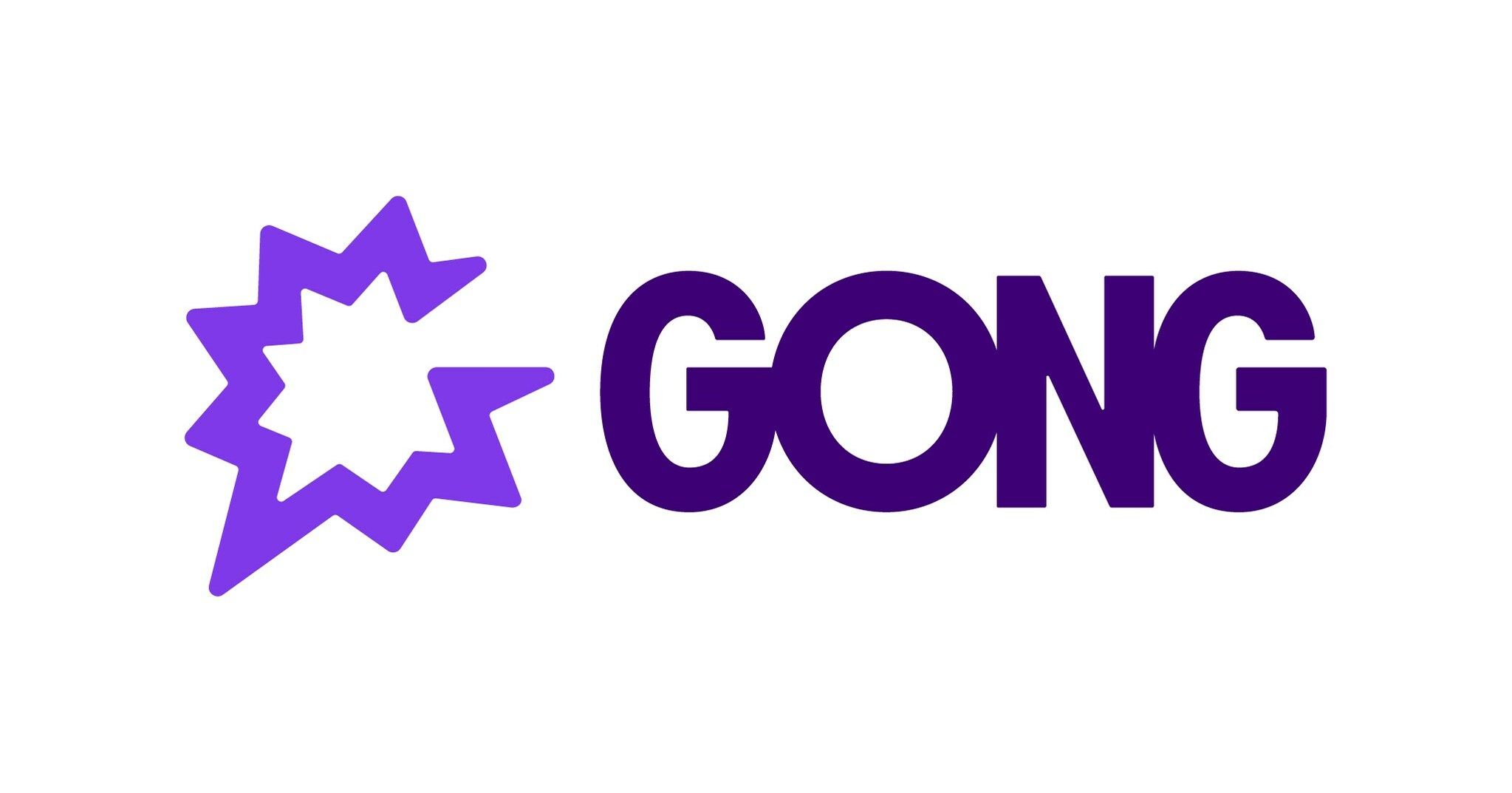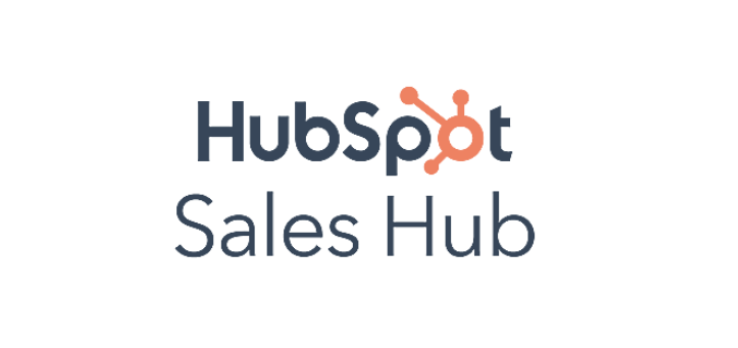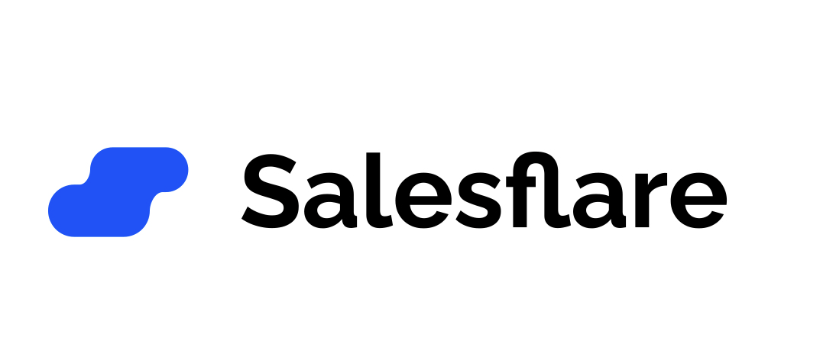How to Implement Sales Enablement for Startups?
Startups face unique challenges in building and scaling their sales processes. Limited resources, lean teams, and a lack of structured frameworks make it difficult for sales and marketing teams to work efficiently.
Imagine a startup founder pitching their SaaS product. Despite having a great product, they struggle to maintain consistency in messaging due to scattered marketing materials and a lack of a defined sales strategy. As a result, deals fall through, and sales cycles become longer than necessary.
According to CB Insights, 38% of startups fail because of an inability to effectively market and sell their products, often due to disorganized sales enablement practices. Without structured sales enablement, even the most promising startups can struggle to gain traction in their respective markets.
Summary
Without a structured approach, sales efforts can become inconsistent, making it difficult to scale effectively. Sales enablement addresses these obstacles by providing teams with centralized sales content, data-driven insights, and automation tools that enhance efficiency and collaboration.
By streamlining workflows, optimizing lead targeting, and ensuring consistent messaging, startups can improve productivity, shorten sales cycles, and drive higher revenue growth
In this blog, we’ll explore the key benefits of sales enablement for startups and how to achieve it.
- What is Sales Enablement for Startups?
- Why is Sales Enablement Important for Startups?
- How Sales Enablement Impacts Startups
- Implementing Sales Enablement in Startups
- Sales Enablement Tools for Startups
- Conclusion
What is Startup Sales Enablement?
Sales enablement for startups is the strategic process of providing sales teams with the resources, tools, and training they need to sell more effectively. Unlike large enterprises, startups often operate with lean teams, limited budgets, and rapidly evolving sales strategies. Sales enablement helps bridge these gaps by ensuring that sales teams have the right content, processes, and technology to engage prospects, close deals, and drive revenue growth.
Sales enablement supports startup teams by:
- Providing foundational frameworks for building scalable sales processes
Startups often struggle with ad-hoc or inconsistent sales approaches. Sales enablement helps establish repeatable and structured sales processes that can scale as the company grows. This includes defining clear sales stages, standardizing outreach strategies, and setting key performance metrics.
- Equipping lean teams with tools to maximize efficiency
With limited resources, startups need to make the most of their sales efforts. Sales enablement leverages technology such as CRM systems, automation tools, and AI-driven insights to help small teams work more efficiently. By automating routine tasks like follow-ups, lead scoring, and reporting, sales reps can focus on engaging with prospects and closing deals.
- Centralizing content for consistent messaging across customer touchpoints
Startups often face challenges in maintaining consistent messaging across sales and marketing efforts. Sales enablement platforms ensure that all customer-facing teams have access to up-to-date, high-quality content. This includes sales decks, case studies, email templates, and product information, allowing teams to deliver a unified and compelling brand message throughout the customer journey.
By implementing a strong sales enablement strategy, startups can improve sales performance, enhance collaboration between teams, and create a streamlined approach to customer acquisition and retention.
Why is Sales Enablement Important for Startups?
To successfully implement sales enablement in a startup, it’s crucial to understand why it matters in the first place. Startups operate in dynamic, high-pressure environments, Without the right sales enablement strategies, teams may struggle with unstructured processes, resource constraints, and inconsistent messaging—challenges that can slow down growth.
Hence, we’ve outlined the key reasons why sales enablement is essential for startups
Establishing a Structured Sales Process
A well-defined sales process ensures efficiency, consistency, and higher conversion rates. Sales enablement provides workflows, automation, and tracking tools that streamline lead generation, nurturing, and closing deals.
Maximizing Efficiency in Small Teams
Startups often operate with lean sales teams that juggle multiple responsibilities. Sales enablement platforms automate repetitive tasks, centralize data, and optimize time management, allowing teams to focus on high-impact activities.
Ensuring Consistent and Effective Messaging
A unified sales narrative strengthens brand positioning and builds credibility. Sales enablement platforms centralize content, ensuring all team members access up-to-date, on-brand materials that resonate with prospects.
Facilitating Scalable Growth and Onboarding
As startups expand, onboarding new sales reps and entering new markets become critical. Sales enablement solutions offer training modules, playbooks, and real-time insights, enabling smooth scaling and reducing ramp-up time for new hires.
Enhancing Competitive Positioning
In a crowded market, differentiation is key. Sales enablement tools equip teams with customer insights, personalized outreach strategies, and competitive analysis, helping startups effectively position their offerings against established players.
.
Outcomes of Startups Sales Enablement
Sales enablement plays a crucial role in helping startups overcome foundational challenges such as process building, scalability, and resource constraints. By implementing the right strategies and tools, startups can streamline their sales operations, improve team collaboration, and accelerate growth.
Unlike larger organizations with established sales infrastructures, startups must build efficient sales processes from the ground up while operating with lean teams and limited budgets. Sales enablement provides the necessary structure and support to level the playing field, allowing startups to compete effectively in their markets.
Key Impacts of Sales Enablement for Startups
- Accelerates Sales Team Onboarding and Training
Startups often have new or expanding sales teams that require rapid onboarding. Sales enablement provides structured learning materials, such as training modules, sales playbooks, and real-time coaching tools, to help new hires ramp up quickly. This ensures that every sales rep is equipped with the knowledge and skills they need to engage prospects effectively.
- Increases Efficiency by Automating Repetitive Tasks
Sales teams spend a significant amount of time on manual, repetitive tasks such as data entry, follow-ups, and reporting. Sales enablement leverages automation tools to handle these tasks, freeing up sales reps to focus on high-value activities like building relationships and closing deals. By optimizing workflows, startups can maximize productivity with minimal resources.
- Improves Alignment Between Sales and Marketing Teams
Misalignment between sales and marketing can result in inconsistent messaging, wasted efforts, and lost opportunities. Sales enablement fosters collaboration by centralizing content, ensuring sales teams have access to the latest marketing materials, and providing data-driven insights to refine messaging. This alignment helps create a seamless customer journey, improving conversion rates and brand consistency.
- Enhances Customer Engagement Through Personalized Outreach
A one-size-fits-all approach to sales rarely works, especially for startups trying to establish strong customer relationships. Sales enablement enables reps to personalize outreach by providing insights into prospect behavior, engagement history, and preferences. Strategic follow-ups and tailored content help build trust and increase the likelihood of conversion.
- Boosts Deal Closure Rates and Revenue Growth
By equipping sales teams with data-driven insights into high-performing strategies, sales enablement helps refine sales tactics and optimize deal-closing techniques. Real-time analytics, lead scoring, and performance tracking allow startups to focus on the most promising prospects and fine-tune their sales processes for maximum impact. This leads to higher win rates, faster sales cycles, and sustainable revenue growth.
Implementing Sales Enablement in Startups
The usual approach involves assessing your sales process, identifying gaps, evaluating content, resources, and tools, selecting the right solutions, implementing them, ensuring adaptability, and setting metrics to track progress. While these are the fundamentals of sales enablement, startups face unique challenges—with lean teams, these steps can add extra pressure to existing sales and GTM teams.
That’s why we’ve created a step-by-step process to help you implement sales enablement without overwhelming your team.
Start Small with the Biggest Bottleneck
Instead of a full-scale rollout, identify that one big sales challenge your team is facing currently (e.g., disorganized content, long sales cycles, or inefficient follow-ups).
Look for enablement related solutions to those issues - if its disorganised content invest in a proper content management software so your reps don’t have to treasure hunt every time and send the outdated content, if its long sales cycle find the exact friction point.
Automate Repetitive Tasks & Workflows
Use AI-driven tools to automate lead scoring, email follow-ups, CRM updates, and meeting scheduling, reducing manual workload for sales reps.
Create a Centralized, Self-Serve Content Hub
Store pitches, decks, case studies, and objection-handling scripts in a single, easily accessible place (e.g., Paperflite, Highspot, seismic) so reps don’t waste time searching for content.
Embed Enablement into Daily Sales Activities
Instead of separate training sessions, integrate micro-learning into existing workflows (e.g., quick Loom videos, Slack-based coaching, and AI-driven call insights ).
Measure What Matters & Iterate Gradually
Track only 1-2 key sales enablement metrics (e.g., time spent selling, email response rates) to ensure improvements without overwhelming teams. Scale enablement step by step.
Sales Enablement Tools for Startups
Choosing the right sales enablement tool can make a significant difference in how efficiently a startup scales its sales processes. Below are some of the most effective platforms tailored to the needs of startups, highlighting their key features, AI capabilities, and potential drawbacks.
Paperflite

Paperflite is a sales content management and enablement platform that helps sales and marketing teams organize, share, and track content engagement in real-time. It allows businesses to centralize their sales collateral, ensuring that sales reps have easy access to the most relevant and up-to-date content when engaging with prospects.
Paperflite also provides deep analytics on how prospects interact with shared content, enabling teams to refine their messaging for better engagement and conversions.
How Does Paperflite Help Startup Sales Enablement?
Startups often struggle with content organization, personalized engagement, and tracking the effectiveness of their sales efforts. Paperflite helps overcome these challenges by:
- Centralizing all sales content – Ensuring reps can quickly access the right materials.
- Providing engagement analytics – Offering real-time insights into how prospects interact with shared content.
- Enhancing personalization – Allowing startups to tailor content experiences for prospects.
- Streamlining collaboration – Enabling marketing and sales teams to align their messaging.
- Reducing manual effort – Automating content distribution and tracking for efficiency.
Key Features of Paperflite:
- Smart Content Library – A centralized hub for organizing sales and marketing materials.
- Personalized Content Sharing – Enables reps to create tailored content experiences.
- Real-Time Engagement Tracking – Provides insights into how prospects interact with shared documents, videos, and presentations.
- Automated Content Recommendations – Suggests the most relevant sales materials based on buyer interactions.
- Sales & Marketing Alignment – Ensures seamless collaboration between teams to maintain consistent messaging.
- Seamless CRM & Email Integrations – Works with HubSpot, Salesforce, Gmail, Outlook, and more.
AI Capabilities of Paperflite:
- AI-Powered Content Recommendations – Suggests the best content based on prospect behavior.
- Engagement Scoring & Predictive Analytics – Helps prioritize leads based on content interaction.
- Smart Content Search – Uses AI to surface the most relevant materials instantly.
- Automated Follow-Up Triggers – Alerts sales reps when prospects engage with shared content, prompting timely follow-ups.
- Ai-powered sales coaching - Helps the reps to have a very highly personalized coaching experience that reduces the chances
Gong

Gong is an AI-driven sales intelligence platform that helps teams optimize performance by analyzing customer interactions across calls, emails, and meetings. It records, transcribes, and provides actionable insights, enabling sales reps to refine their strategies and close deals more effectively.
How Gong Supports Startup Sales Enablement
For startups with lean teams, Gong enhances sales effectiveness by identifying successful behaviors, optimizing pitches, and streamlining onboarding. It provides real-time insights into deal risks, prospect engagement, and sales trends, ensuring alignment between sales and marketing. By improving objection handling and sales coaching, Gong helps startups increase win rates and scale efficiently.
Key Features:
Conversation Intelligence – Records, transcribes, and analyzes sales calls.
Deal Execution – Tracks deal progress and flags risks.
Sales Coaching – AI-driven feedback for performance improvement.
Pipeline Management – Visibility into deal stages and bottlenecks.
Market & Competitive Intelligence – Tracks competitor mentions and trends.
AI-Powered Recommendations – Optimizes strategies based on successful deals.
Seamless Integrations – Connects with CRMs like Salesforce and HubSpot.
Pros of Gong:
- Provides data-driven insights for smarter decisions.
- Enhances sales coaching and training.
- Improves pipeline visibility and risk assessment.
- AI-powered recommendations for better deal execution.
- Scales effectively with growing teams.
Apollo

Apollo.io is an AI-powered sales intelligence and engagement platform that helps startups identify, engage, and convert leads effectively. It combines a B2B database with automation tools to enhance prospecting and outreach strategies.
How Does Apollo.io Help Startup Sales Enablement?
Startups often struggle with lead generation, and Apollo.io solves this by providing access to an extensive contact database, enriching lead information, and automating multi-channel outreach. It enables small teams to conduct targeted prospecting, streamline email sequences, and optimize engagement strategies to close deals faster.
Key Features of Apollo.io:
- B2B Contact & Company Database – Access to millions of verified business contacts.
- Automated Outreach – Email sequencing, LinkedIn automation, and calling features.
- Lead Enrichment – Auto-updates CRM with detailed contact and company data.
- Engagement Tracking – Monitors opens, replies, and prospect activity.
- CRM & Sales Tool Integrations – Works with Salesforce, HubSpot, and more.
AI Capabilities of Apollo.io:
- AI-Driven Lead Recommendations – Suggests high-intent prospects based on engagement.
- Automated Personalization – Customizes outreach based on behavior patterns.
- Predictive Analytics – Identifies prospects most likely to convert.
- AI-Optimized Cadences – Adjusts outreach timing for better responses.
HubSpot sales hub

HubSpot Sales Hub is an all-in-one sales CRM and automation platform designed to help startups streamline their sales processes, improve outreach, and close deals more efficiently. It offers powerful tools for managing leads, automating follow-ups, and tracking sales performance within an intuitive and scalable system.
How Does HubSpot Sales Hub Help Startup Sales Enablement?
For startups, efficiency and scalability are key, and HubSpot Sales Hub simplifies sales processes by automating repetitive tasks, tracking interactions, and optimizing outreach. It provides real-time insights into customer engagement, helps align sales and marketing efforts, and enables small teams to work smarter without added complexity. The platform’s seamless integration with marketing automation makes it a great choice for startups looking to scale quickly.
Key Features of HubSpot Sales Hub:
- Automated Sales Outreach – Email sequencing, follow-up automation, and meeting scheduling.
- CRM Integration – Centralized lead tracking and contact management.
- Live Chat & Conversational AI – AI-powered chatbots for lead engagement.
- Deal Pipeline Management – Visual dashboards for tracking sales progress.
- Sales Analytics & Reporting – Insights into deal performance and rep activity.
- Seamless Integrations – Connects with marketing, customer service, and productivity tools.
AI Capabilities of HubSpot Sales Hub:
- AI-Powered Lead Scoring – Identifies high-priority leads for better conversion.
- Conversational AI – Chatbots engage and qualify leads in real time.
- Predictive Sales Forecasting – Uses AI insights to anticipate revenue trends.
- Automated Email Sequences – Optimizes outreach with AI-driven personalization.
Salesflare

Salesflare is a simple, AI-powered CRM designed for small businesses and startups. It automates data entry, lead tracking, and follow-ups, helping teams focus more on selling and less on admin tasks.
How Does Salesflare Help Startup Sales Enablement?
Startups need a CRM that’s lightweight, intuitive, and automation-friendly, and Salesflare delivers by reducing manual data entry and streamlining lead management. It pulls in customer data automatically, tracks engagement, and ensures timely follow-ups, making it an ideal choice for startups with limited time and resources.
Key Features of Salesflare:
- Automated Contact & Lead Data – Captures emails, meetings, and interactions automatically.
- Smart Follow-Ups – AI-driven reminders for next steps in the sales process.
- Pipeline & Deal Management – Visual sales pipeline with progress tracking.
- Sales Collaboration – Team-wide access to lead insights and history.
- Seamless Integrations – Works with Gmail, Outlook, Slack, and Zapier.
AI Capabilities of Salesflare:
- Automated Lead Enrichment – Gathers contact data from multiple sources.
- Smart Follow-Up Suggestions – AI-driven reminders to re-engage prospects.
- Predictive Pipeline Analytics – Forecasts deal success based on activity patterns.
- AI-Powered Email Tracking – Tracks email opens and engagement for better timing.
Wrapping up
By implementing structured sales enablement strategies and leveraging the right tools, startups can equip their teams with the insights, automation, and content needed to accelerate deal closures and improve overall efficiency.
The next step is to assess your current sales processes, pinpoint areas for improvement, and explore enablement solutions that align with your growth objectives.
Whether it's integrating AI-driven automation, optimizing sales workflows, or enhancing team training, taking proactive measures today will build a scalable, high-performing sales function. Investing in sales enablement now ensures that your startup is not only prepared for immediate success but also positioned for long-term, sustainable growth.
